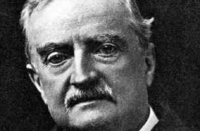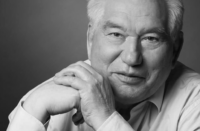The ideas that reflect the objective interests of a class are its ideology. The ruling class in any society imprints its ideology on “mainstream” thinking, as expressed in all the official opinions of the state—in politics, economics, philosophy, art, religion, and so on.
As it expresses the interests of the ruling class, it has a class character. It reinforces the claim of this class to rule society in its exclusive interest. This class bases its power on the ownership of the means of production (including land), and it will defend this right with all means available: in the education of its citizens, in the media, through the laws it makes, and, if necessary, by violence.
Pre-socialist class ideologies portray propertied class society as eternal and unchangeable. This is in their ideological interest.
In its rising phase, the bourgeoisie presented capitalism as the most rational society possible and declared their own class interests to be those of all citizens. This era is called the Enlightenment, which gave birth to classical liberalism, emphasising the “freedom” of the individual from the control of church and state/monarch. This ideology had to be adapted as capitalist development produced ever-higher levels of poverty and the working class began to articulate its own ideological interests in the nineteenth century. This resulted in classical liberalism being forced into social liberalism, which meant providing a degree of social welfare to pacify the dispossessed.
However, with capitalist society driven onto the defensive, its ideology has needed to adapt. One such ideological defence strategy has been reformism, an adjunct of social liberalism. It claims that fundamental reform of capitalism is possible and desirable for the working class. It attacks socialism as an alternative. As part and parcel of this, working-class and liberation history are revised. Bourgeois ideologists assert that classes and class struggle no longer exist.
The objective interests of the working class also define its ideology: the Marxist understanding of history as the history of class struggle, leading ultimately to the abolition of exploitative class society, not its reform.
Working-class organisations, arising in the second half of the nineteenth and early twentieth century, expressed growing awareness that capitalism was contrary to their interests and that they were gaining the strength to challenge this. At the time of its inception, the Social Democratic Party of Germany was a revolutionary party, which waged its struggle according to a Marxist programme. Connolly and Larkin established the Irish Labour Party in 1912 as the political wing of the Irish Trades Union Congress. The Labour Party in Britain was a trade union based movement, which became a political party only in 1918.
In other words, social democracy is in its origins a working-class movement. It is not an ideology. With the transition to imperialism, reformism rapidly became the dominant ideology within social democratic parties, aided by bribed leaderships and supported by petit-bourgeois members. However, alongside the bourgeois ideology of reformism, a proletarian ideology co-existed. Such division split and weakened the working-class movement and caused alienation between socialists and communists. In the war-torn first half of the twentieth century, this division facilitated the rise of fascism.
The existence of socialist countries and strong working-class organisations at home forced many Western countries to adopt better welfare policies. However, the ideological battle against existing socialism continued and resulted in reformist elements increasingly dominating social democratic parties. Outright bourgeois leaderships hijacked many of the parties, crushing the emancipatory goals of the rank and file.
We must understand and utilise this history of social democratic parties and their divided membership. One cannot simply identify the entire movement with the pro-imperialist, reformist and opportunist position taken by their leaderships. We must recognise that within social democratic parties there is a left wing with an instinctive working-class consciousness. The manifesto of Jeremy Corbyn’s Labour Party, for example, undermines the very cornerstone of neo-liberalism. Corbyn and his supporters face serious battles against the bourgeois reformist lobby that has usurped the parliamentary faction of their party.
The Irish Labour Party continues to be led by a reactionary parliamentary leadership. Nevertheless, it is crucial to work in broad movements with left-leaning Labour members who are resisting the rampant dismantling of existing achievements, to foster class understanding within these movements, and to move them in the direction of socialist change. Such alliances are essential to our ideological and practical political struggle if we want to resist the onslaught of the bourgeoisie on the very existence of the planet.
As Georgi Dimitrov, the Bulgarian communist and future leader of the Communist International, said in 1923, “the united front and class collaboration . . . are . . . two tactics profoundly opposed, quite incompatible and mutually exclusive.
“The united front of labour aims at pooling the efforts of the proletariat and of all the working people, groups and elements in present-day capitalist society in defence of their vital interests and rights, which happen to coincide at a given moment, against the capitalist bourgeoisie and its reaction, while class collaboration disorganises the working people, undermines their parties and organisations, facilitates the bourgeoisie in its plans for exploitation and oppression, and buttresses its class rule over the great majority of the working people.





